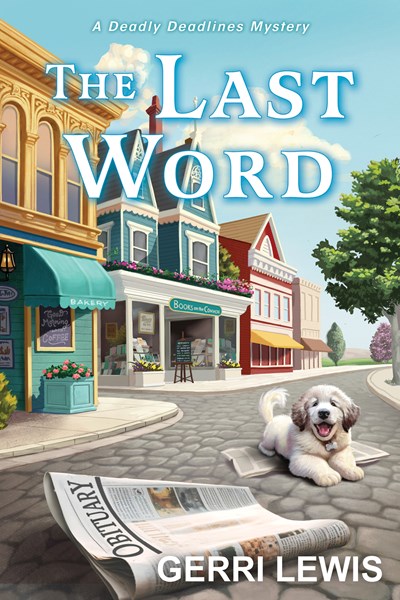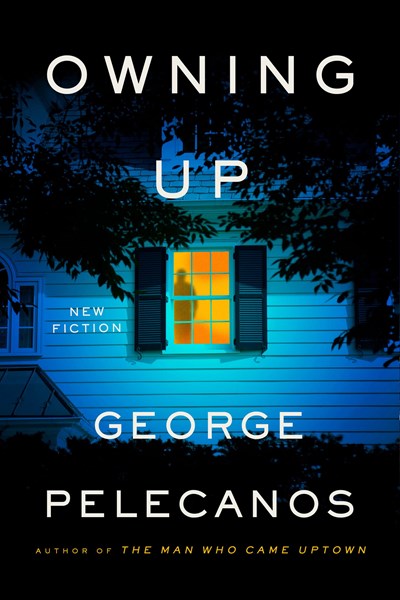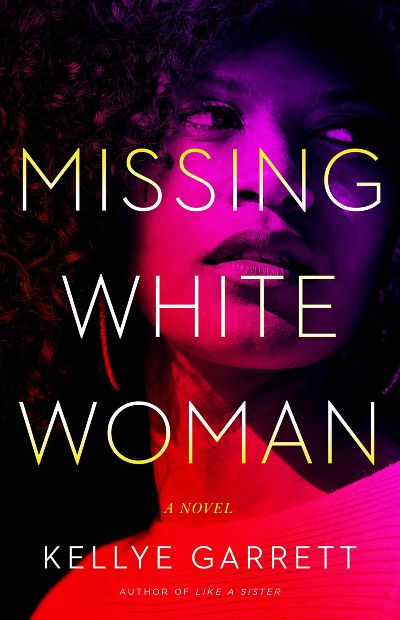Connelly’s stellar effort, which brings together defense attorney Mickey Haller, the Lincoln Lawyer; and retired LAPD Detective Harry Bosch, explores a case of an incarcerated woman claiming innocence. She was coerced into a no-contest plea of a lesser sentence of manslaughter by her sleazy attorney, who told her if she didn’t agree to this deal, she would face life in prison for killing her sheriff’s-deputy husband. Every attempt by Haller and Bosch to find answers is met with either disdain or tainted evidence and testimonies. Connelly is a master of taking a straightforward case and compellingly revealing the details while throwing in a few twists and turns. Laws are questioned and Bosch and Haller soon determine they are David and this Goliath is too strong for them. Whether you are a fan of the books or the Netflix and Amazon Prime series, this latest entry is another gripping winner from the master of crime fiction, and with the great popularity of the TV series, expect huge interest in this title.
Mystery & Detective
Thirty-something Winter Snow—yes, that’s her real name—is self-employed as an obituary writer, a pretty genius career for a cozy hero and a nice break from bakeries, cafes, and fromageries. Based in posh Ridgefield, Connecticut, Winter is no stranger to loss, and believes that her obituaries “facilitate acceptance for the grief-stricken.” But when Leocadia Arlington—one of Ridgefield’s grand dames, and very much alive—asks Winter to compose her obituary by the week’s end, Winter is surprised but agrees to take her on. But surprise turns to horror when Winter finds Mrs. Arlington dead, and Winter, naturally, is the prime suspect. When reading a new cozy, I’m on the lookout for two things: character and community. I’m happy to report that Winter is a wonderful leading character: quirky, disarmingly frank, with a touch of irony. The delightful community includes Winter’s foodie Uncle Richard; journalist Scoop; Officer Kip, “tall, good-looking in a brooding way, with dark wavy hair and a trim fit body”; Mrs. Arlington’s family members; a corrupt book club (it happens!); along with neighbors and friends. Lewis has created a fun, playful world—despite a murder—that many cozy readers will love to return to. And did I mention Diva, the Great Pyrenees puppy? Totally adorable.
Washington, DC homicide detective Alex Blum is an in-between sort of cop. He’s not jaded, but he’s used to the horror he sees on the job. He knows that, unsexy as it is, procedure gets things done, although he can cut corners when it suits. But after he’s called to a murder scene and finds that the dead man, Chris Doyle, knew one of Blum’s informants, Artie Holland, Blum throws procedure and even personal beliefs to the wind. The informant is missing—in his world as a drug dealer, probably dead, but we’ll see—but his girlfriend, Celeste, is still in his home. She and Blum take up a dangerous relationship, one that must be hidden from both his job and Artie’s cohort, who wouldn’t like a cop taking Artie’s place. Swinson’s dialog is a highlight here. The characters, from the medical examiner and cops to desperate Celeste and the dancers at a topless bar—one of Artie’s haunts—all talk us through seedy and horrible events while the rumored Y2K disaster looms and Blum edges further toward his own destruction. Swinson’s unusual ending tops the surprises in this rough, realistic noir.
In Blackburn’s latest cozy, Summer Merriweather, owner of the Beach Reads bookshop, has a special Valentine’s Day event lined up, and invites Lana Livingston, a famous author who has reimagined Romeo and Juliet with a happy ending, to lead the festivities. Summer doesn’t realize that Lana recently became a widow and is being investigated for the murder of her husband. Things worsen when Lana has tea during her bookstore appearance and is later found dead of poisoning in her hotel room. The main suspect is Glads, the woman who served the author tea during the event. A ruthless detective wants answers, and to save her friend from being railroaded, Summer gathers a group of amateur detectives, including her ex-boyfriend, to solve not only who killed Lana but maybe even who murdered the author’s husband. Fans of cozy mysteries will find everything they love here, and even though this is the third book in the series, both newcomers and readers of the previous entries will find it worthwhile.
George Pelecanos is such a wonderful writer—word by word, sentence by sentence, paragraph by paragraph—that you can finish any of these stories only to wonder: how did I get here so fast? In these four novellas, Pelecanos mines familiar territory—Washington D.C. and Baltimore—areas he has explored in his 20-plus novels and as a film and television producer and writer who has worked on the HBO series The Wire, Treme, and more. In the first story, “The Amusement Machine,” two men—one white, Ira; and one Black, Jerrod—meet at a book group in jail and form a tentative friendship that extends beyond prison. Until a foolhardy act on Ira’s part, which nearly implicates Jerrod, seemingly destroys whatever relationship they might have. In “The No-Knock,” a family’s home is invaded by the police operating under a no-knock warrant, which allows the cops to force entry without identifying themselves. They are seeking one of the teenage sons, Vince, who eventually turns himself in, guilty of robbing a marijuana dealer. But while the son never again engages in criminal activities, the violence and disruption of the home invasion is something the father can never get past, with it haunting him for the rest of his life. Novellas are great for book groups, especially today when people are often intimidated by a 300-page novel, but crime fiction offers few novella choices. This collection is one of the very best.
This is one wild, suspense-driven tale, equally rich in characterization and plot. Breanna is on a mini-vacation with her new boyfriend, Ty, staying in a beautiful brownstone in Jersey City while touring Manhattan. Ty’s thought of everything, and the long weekend is 95 percent perfect, except for that five percent when Ty won’t stop with the work calls. But when Bree wakes up on their final morning, she can’t find Ty anywhere. What she does discover, strewn in the foyer, is the bloody corpse of a young woman that turns out to be Janelle, who has been missing for days. From here, things really take off, with Bree’s best friend—they’ve been estranged since college—arriving on the scene (she’s a take-charge criminal attorney), while Billie, a super-successful makeup influencer, rallies her thousands of followers into seeking #Justice4Janelle. Garrett does a great job of tracking the racism Bree experiences, from the neighbors’ microaggressions to the stereotypes purported about Ty to the national frenzy that only a white woman’s disappearance could generate (and thus the book’s title). A great cast, a wide-reaching narrative, and a resolution that will leave readers ruminating for days. Can’t wait to introduce this to a book group
This is Estes’s debut novel, but far from her first brush with the TV journalism world portrayed in the book. Like her main character, Jolene Garcia, the author is a reporter in Phoenix, an Emmy winning one at that. Readers will get the feeling that she’s all too familiar with the pressure that’s on Jolene to do it all—investigate, write, present—all while looking fabulous on TV, then rinse and repeat on social media. Jolene is tired of the fluffy stories that the station runs to please the manager’s wife, and when a death occurs at a local radio station, she’s all over it. The deceased might be Alex Jones-alike Larry Lemmon, a talk-show host who divides his time between hating facts and hating immigrants more, a story that’s bound to draw viewers in droves. Dare she hope? And better again, maybe he was murdered. Her TV-news sensation dreams are fulfilled, but many questions remain. Assisting Jolene in getting the scoop on those is a reluctantly helpful police officer whose portrayal of departmental politics and ethics add narrative tension. But best is Jolene’s relentlessness and endurance of whatever it takes to get the story. Estes says that “J.A. Jance’s Ali Reynolds series planted the seed for my writing while Hank Phillippi Ryan’s Jane Ryland series helped it grow,” so fans of those series are a natural fit for this gritty thriller.
This new title from Delia Pitts—author of the Ross Agency series—offers everything that fans of detective fiction are looking for. Vandy Myrick, a former cop—she joined the force to impress her cop dad—is now a detective in Queenstown, New Jersey, her hometown, where she sets up a firm with BFF and trial lawyer Elissa. They’re two Black women in a town where racism, “casual like flip flops down the Jersey shore,” is always bubbling right under the surface. Vandy’s work is mainly divorce cases, and when she gets a call from the Mayor’s nephew—Queenstown royalty—asking her to track his wife, she just assumes that one more “Q-Town” marriage has hit the rocks. Except this gig quickly spins out of control when Vandy walks in on a double homicide, one that the powers that be are all too eager to shut down. Pitts has written a strong narrative that ricochets from Vandy’s tragic past to her gutsy present, keeping readers totally engaged to the very last page…and eager for more. Fans of Robyn Gigl’s thrillers will enjoy visiting New Jersey with Vandy.
Well-known for her excellent historical crime fiction—including the Jane Prescott series and, more recently, The Lindbergh Nanny—Fredericks surpasses even those efforts with this dazzling, magical foray into the life of Edith Wharton. It’s 1911, we are in New York City, and Wharton, nearly 50, is down in the dumps. Yes, she’s the witty, acerbic, and a brilliant conversationalist we imagine her to be. But it’s been six years since the publication of her last bestseller. Husband Teddy is mentally ill. Buddy Henry James is aging quickly. Her affair with Morton Fullerton would seem to be over. And all she really wants is to get back to Paris. In short, things aren’t so gilded. When David Graham Phillips, a handsome young novelist, is shot and killed in front of the Princeton Club, it piques Wharton’s interest. She had just met him the day before at tea in the Palm Court, and while her immediate reaction was disdain, as a corpse, Phillips is far more interesting. Who would want to kill a novelist, and why? What is so very brilliant about this novel is that Wharton’s search for the truth—which takes her from the publishing industry (hilarious) to New York society (terrifying)—is skillfully enmeshed with the challenges she faces as a woman, a writer, and a wife. In a particularly poignant scene, Wharton is walking home and realizes she is being followed. She finally turns to confront the perpetrator, only to discover it’s her feeble, slipper-clad husband, following her for fear she’ll abandon him. Sure to be one of the best books of the year, and a perfect choice for book groups that appreciate a rich context.
Real life collides with reality television in a mega-rich section of Los Angeles in Goldberg’s latest thriller. Detective Eva Ronin investigates the discovery of bones found in a park outside a private and secure area called Hidden Hills. That cold case soon requires focusing on a current investigation when a reality star is murdered inside her home while her family sleeps nearby. Hooded thieves broke in and ran when the family awoke to the gunshots. The expected security of the community appears nonexistent. Eva knows about the world of Hollywood since her police role has become a TV series, so she’s used to what is factual being played up for entertainment value. But this case seems to defy logic as more deaths occur, and reality means nobody is safe. Goldberg has created a terrific character in Eva Ronin, and he knows how to write a fast-paced thriller mixed with humor and inside jokes with no fluff. Like Michael Connelly, Goldberg also utilizes the Los Angeles landscape effectively.










